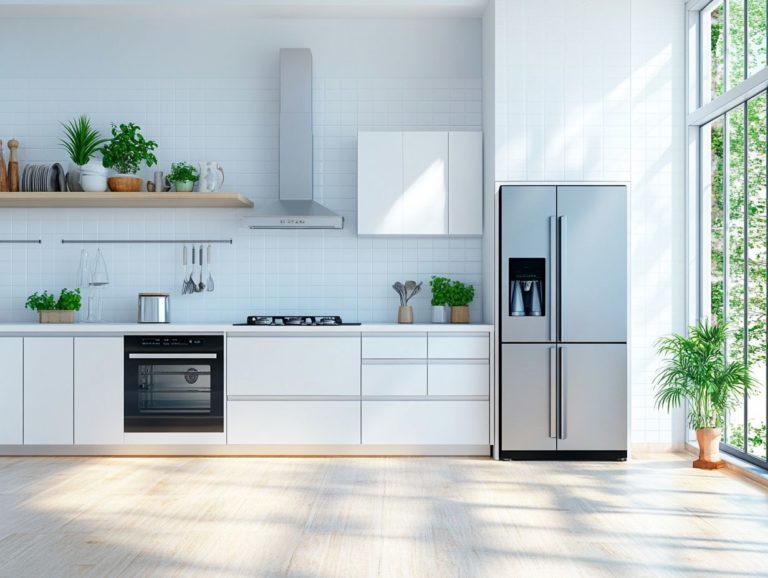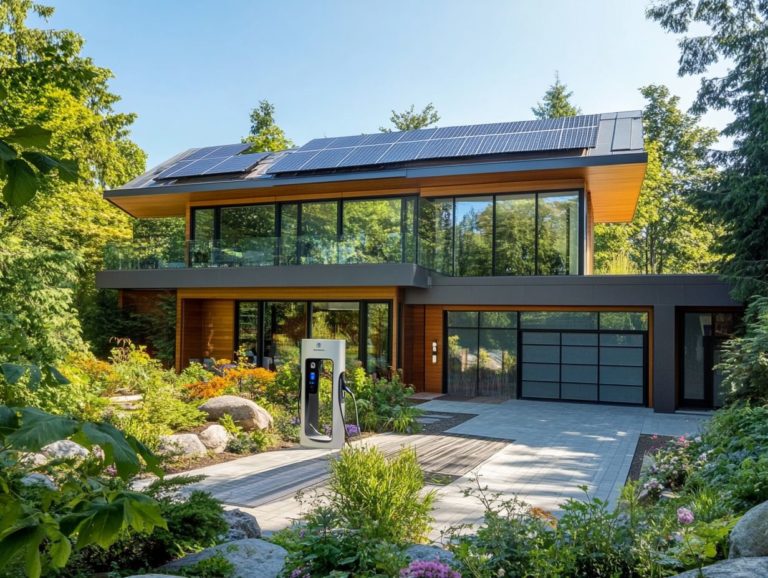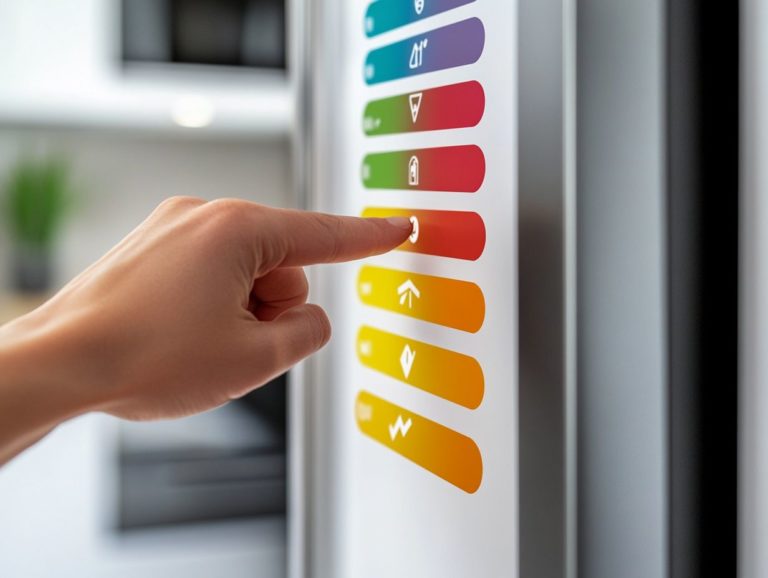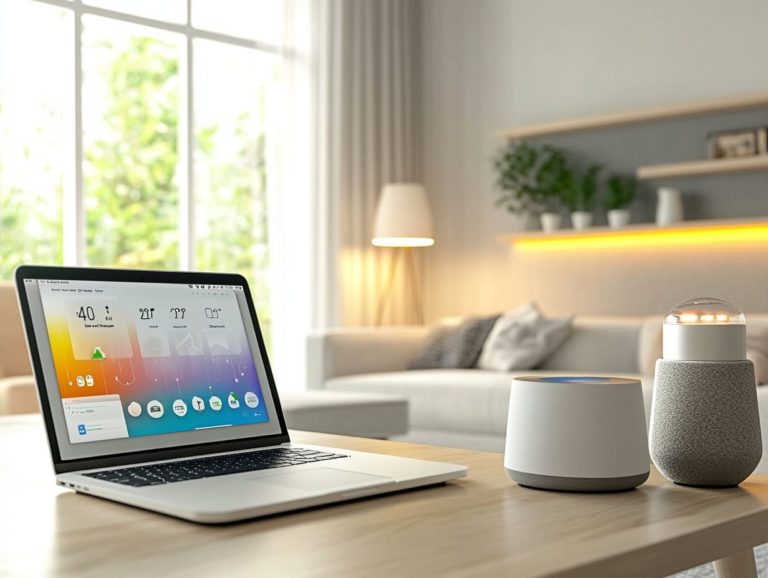How to Calculate Savings from Energy-Efficient Appliances
Want to cut your energy bills and help the planet? Energy efficiency is the answer!
In today’s landscape of ever-increasing energy costs, grasping the concept of energy efficiency is not just important it’s essential.
This article delves into the value of energy-efficient appliances, revealing how they can positively impact both your finances and the environment. You’ll find a clear breakdown of how to calculate potential savings, along with real-life examples that illustrate the tangible benefits of making the switch.
Armed with practical tips for selecting the right appliances, you ll be empowered to make decisions that not only save you money but also contribute to a sustainable future.
Explore how embracing energy efficiency can transform your home and your budget.
Contents
- Key Takeaways:
- The Importance of Energy Efficiency
- Calculating Savings from Energy-Efficient Appliances
- Examples of Calculating Savings
- More Benefits of Energy-Efficient Appliances
- Tips for Choosing Energy-Efficient Appliances
- Preguntas Frecuentes
- 1. Qu son los electrodom sticos de bajo consumo energ tico?
- 2. C mo puedo calcular el ahorro de los electrodom sticos de bajo consumo energ tico?
- 3. Qu factores debo considerar al calcular el ahorro?
- 4. Hay una f rmula para calcular el ahorro?
- 5. Hay herramientas en l nea para ayudarme a calcular el ahorro?
- 6. Cu les son algunos otros beneficios de usar electrodom sticos de bajo consumo energ tico?
Key Takeaways:
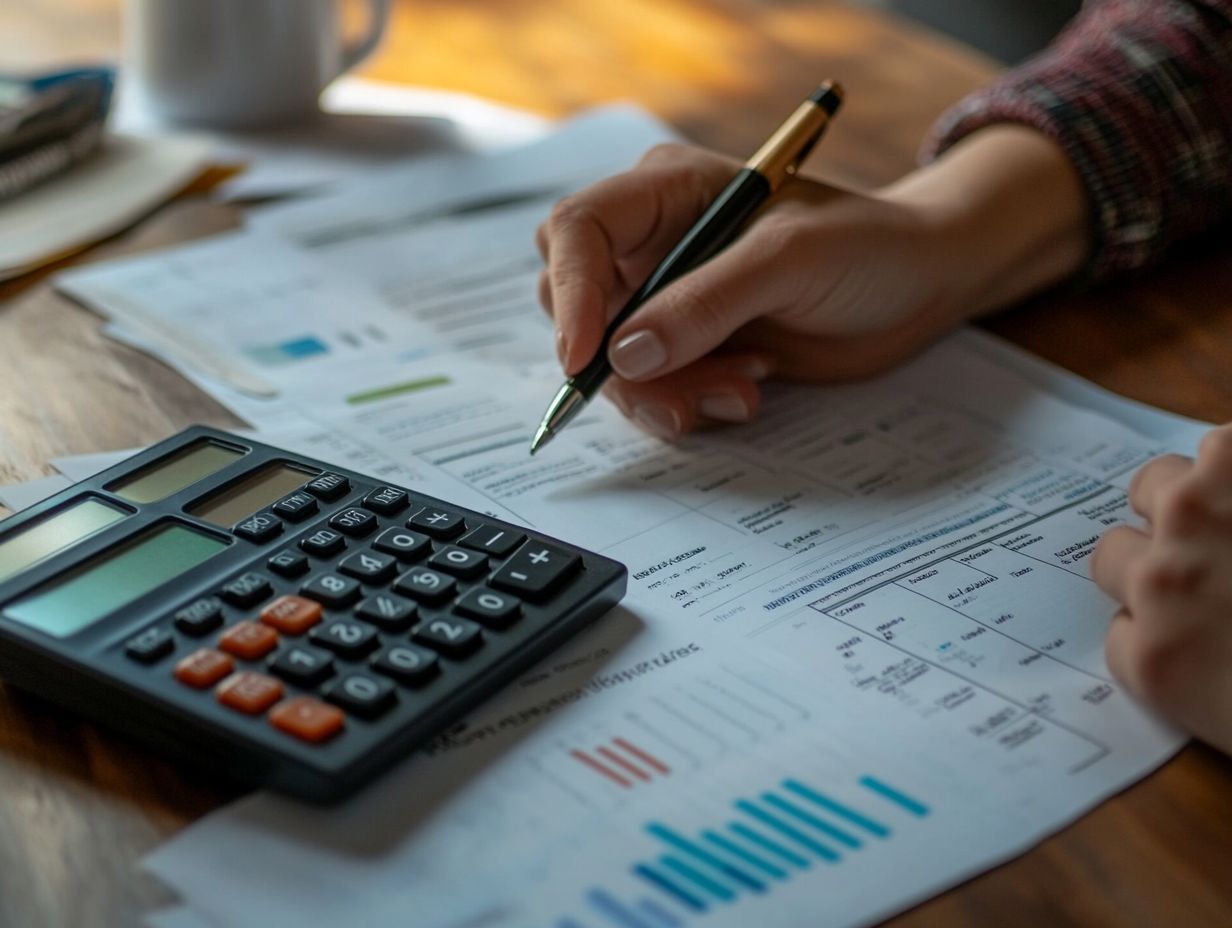
- Energy efficiency helps reduce household energy costs and consumption.
- Prioritize ENERGY STAR products for better savings and sustainability.
The Importance of Energy Efficiency
Energy efficiency is very important as you navigate the complexities of climate change and soaring energy costs. Embracing energy-efficient products and practices makes a big difference in reducing your energy consumption and carbon footprint.
Initiatives backed by organizations such as Rewiring America and the Department of Energy highlight the significance of household electrification. They urge you to adopt ENERGY STAR certified appliances and systems. These choices not only contribute to a more sustainable future but also promise potential savings over time.
Understanding Energy Consumption and Cost
Understanding your energy consumption is crucial for managing household costs and achieving energy efficiency. By utilizing an energy usage calculator, you can assess your daily energy consumption measured in kilowatt-hours (kWh), which is a unit of energy used to measure electricity consumption.
This tool enables you to make informed decisions about energy-efficient products and their long-term cost benefits. As you examine how different appliances contribute to your overall energy use, you ll be able to identify areas where you can reduce consumption, ultimately lowering your utility bills.
It’s also important to recognize that your purchasing decisions significantly impact the promotion of energy-efficient devices. When you choose to invest in ENERGY STAR-rated products, you not only enjoy reduced energy costs but also contribute to a broader movement toward sustainability.
Your choices play a vital role in amplifying energy conservation efforts, allowing your home to thrive economically while supporting a healthier planet.
Calculating Savings from Energy-Efficient Appliances
Calculating savings from energy-efficient appliances is crucial for households seeking to maximize their financial benefits while minimizing energy costs.
By evaluating energy consumption patterns and conducting thorough energy audits, you can pinpoint which appliances like LED lighting, HVAC systems, and smart thermostats will yield the highest return on investment in terms of both energy savings and overall comfort.
Factors to Consider
Consider several important factors when evaluating energy-efficient products to ensure you achieve maximum savings and efficiency. By prioritizing ENERGY STAR certified appliances, understanding purchasing policies, and recognizing the advantages of energy audits, you can significantly enhance your household’s energy-saving strategy and financial outcomes.
Beyond just certification, it’s essential to explore the specifics of each product’s performance metrics. ENERGY STAR labeled products undergo strict testing to ensure they are energy-efficient, which means they typically consume less energy than standard alternatives.
You should also familiarize yourself with any available rebates or incentives related to energy-efficient purchases, as these can elevate the overall value of your investment. Conducting energy audits can help uncover hidden inefficiencies within your home, revealing further savings opportunities and enabling you to make informed decisions about which improvements will deliver the best return on investment.
Start evaluating your appliances today and see how much you can save!
Formula for Calculating Savings
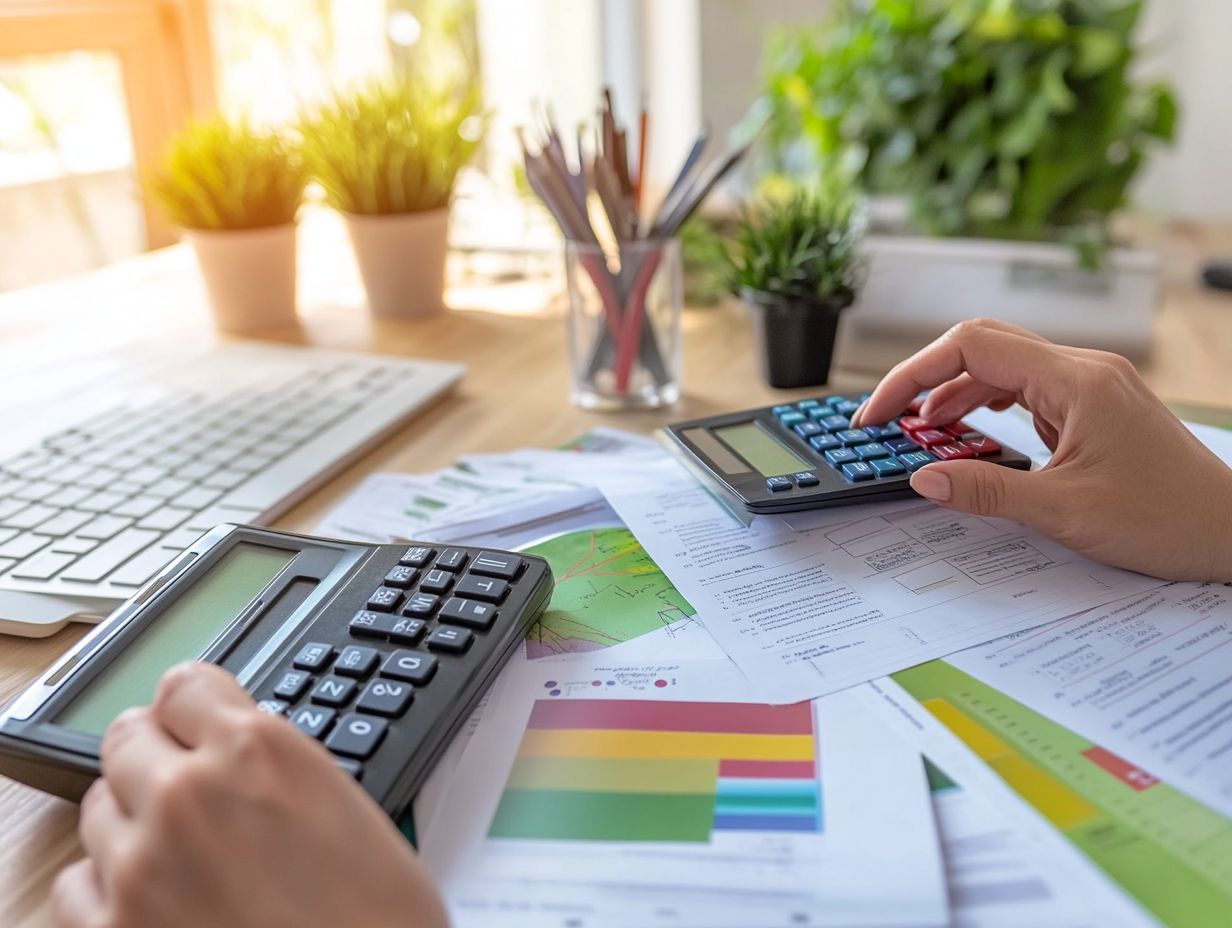
Calculating your potential savings from energy-efficient appliances is straightforward. It is based on energy consumption, measured in kilowatt-hours (kWh).
By examining the difference in kWh usage before and after you implement these appliances, you can effectively quantify your savings. For guidance on upgrading to energy-efficient appliances, this approach helps you track your actual energy use and adjust your habits for greater efficiency.
For example, if your household previously consumed 1,200 kWh monthly and, following an energy audit, your usage drops to 800 kWh thanks to the installation of efficient devices, you can easily determine your savings.
Simply use the formula: (Old Usage – New Usage) x Cost per kWh, and you ll gain a clearer financial perspective. Conducting energy audits assessments of how much energy your home uses reveals hidden inefficiencies, offering tailored insights that enable you to make well-informed choices about your energy consumption strategies.
This ultimately translates to reduced utility bills, putting more money back in your pocket.
Examples of Calculating Savings
Real-life scenarios that illustrate the savings calculations associated with energy-efficient appliances can offer invaluable insights.
Consider the evaluation of costs tied to HVAC and water heating systems in commercial food service environments. This analysis reveals that investing in energy-efficient technologies not only enhances operational efficiency but also yields significant long-term financial benefits.
Real-Life Scenarios
Consider real-life scenarios where energy-efficient products have led to remarkable savings, like the installation of ENERGY STAR-certified commercial dishwashers. These appliances not only slash energy consumption but can also significantly reduce operating costs over time.
Take, for example, a restaurant that upgraded its outdated dishwasher to an ENERGY STAR model. This change resulted in a stunning reduction in utility bills, saving thousands of dollars each year. Such transformations highlight the undeniable financial benefits of making these upgrades.
Energy audits play a crucial role in pinpointing these opportunities, uncovering inefficiencies that might otherwise go unnoticed. By thoroughly assessing energy usage, these audits enable you to make informed decisions about adopting energy-efficient solutions, proving essential not just for cost savings but also for cultivating a deeper commitment to environmental responsibility.
This blend of practical efficiency and fiscal savvy speaks volumes about the advantages of embracing energy-efficient technologies.
More Benefits of Energy-Efficient Appliances
Beyond the potential savings, understanding how to choose energy-efficient appliances offers substantial environmental advantages, significantly reducing energy consumption and decreasing carbon pollution levels.
By investing in these technologies, you can take advantage of utility rebates and incentives that encourage a more sustainable lifestyle.
Environmental Impact
The environmental impact of energy-efficient products is truly significant; they are crucial in reducing carbon pollution and overall energy consumption. When you incorporate solar panels alongside these appliances, you amplify their effectiveness in cultivating a sustainable living environment.
Studies reveal that energy-efficient devices can slash household energy use by up to 30%, leading to substantial reductions in utility bills while simultaneously curbing greenhouse gas emissions. When you pair these devices with renewable sources like solar panels, the synergy not only enhances your energy independence but also contributes to a cleaner grid.
For example, the U.S. Department of Energy highlights that transitioning to energy-efficient appliances can yield annual savings of nearly 50 million metric tons of CO2 equivalent to removing 10 million cars from the road. These strategies are essential for fighting climate change and creating a healthier planet. Act now to make a difference!
Long-Term Savings
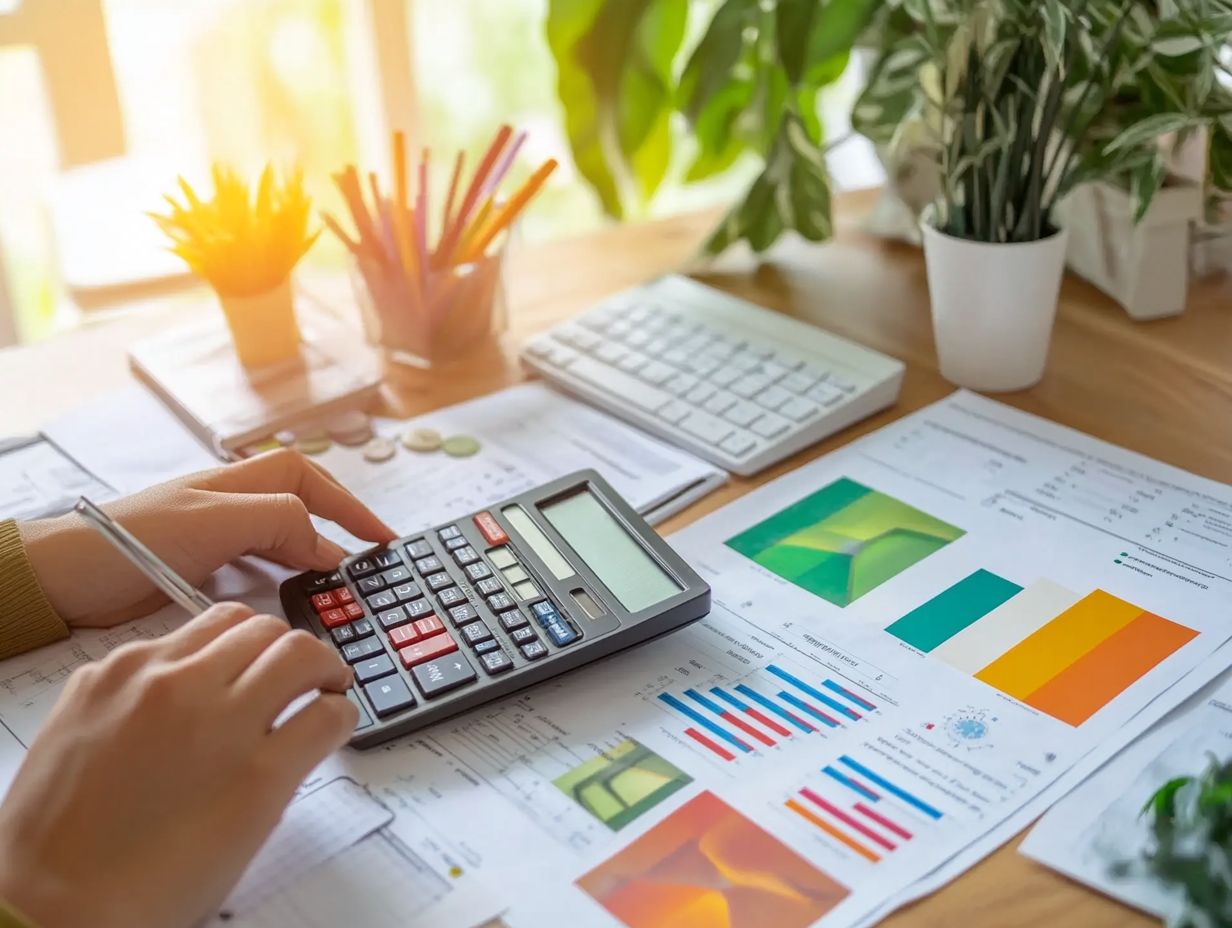
Investing in energy-efficient appliances offers you immediate advantages while ensuring long-term savings throughout your household operations. This includes notable reductions in costs related to HVAC systems, water heating, and enhanced home insulation.
By selecting appliances with high energy ratings, you can see a decrease in your monthly utility bills, and following tips for choosing energy-efficient appliances can help you save potentially hundreds of dollars each year.
For example, a family that upgraded to an ENERGY STAR-rated washer experienced a nearly 30% decrease in their water bill. This showcases how even small changes can make a significant difference over time.
Energy-efficient appliances typically require less maintenance, which leads to additional savings. One neighbor found that after replacing an old refrigerator with a more efficient model, their maintenance costs were slashed in half over five years. For those considering a switch, learning how to upgrade to energy-efficient appliances makes a compelling argument for such investments.
Tips for Choosing Energy-Efficient Appliances
Choosing energy-efficient appliances demands careful attention and an understanding of the essential features that elevate both efficiency and performance.
By prioritizing ENERGY STAR-certified products such as smart thermostats, water heaters, and LED lighting you can optimize your energy savings while contributing to a sustainable future.
What to Look for When Shopping
When you’re shopping for energy-efficient products, it s crucial to know exactly what to seek out. Look for ENERGY STAR certification and phrases that indicate efficiency standards.
Reviewing purchasing policies and conducting energy audits can steer you toward the most effective options. Familiarizing yourself with key terminology, like “wattage” which refers to how much energy an appliance uses and “lifespan,” which indicates how long it lasts, will prove invaluable.
This knowledge enables you to differentiate between various options and select items that truly align with your energy-saving goals. Actively seeking products with endorsements from reputable organizations can provide assurance of quality.
By paying careful attention to these certifications and engaging in thorough research, you can maximize both your savings and the environmental benefits of your purchasing decisions.
Making the Switch to Energy-Efficient Appliances
Making the switch to energy-efficient appliances is a smart choice that can lead to significant savings over time. Conducting energy audits helps you understand your current energy consumption and pinpoint the appliances that need replacing, such as outdated HVAC systems and water heaters.
By evaluating the performance of your existing equipment, you can identify which appliances are the biggest energy hogs and prioritize their replacements.
Researching ENERGY STAR-rated models will guide you in selecting options that trim your utility bills and substantially lower your carbon footprint.
Transitioning to these advanced technologies not only cuts down on your energy expenses but also contributes to a healthier environment by reducing greenhouse gas emissions. Ultimately, this strategic approach can yield considerable long-term savings while reinforcing your commitment to sustainability.
Preguntas Frecuentes
1. Qu son los electrodom sticos de bajo consumo energ tico?

Son dispositivos que usan menos energ a que los tradicionales. Est n hechos para ayudar a reducir tus facturas de electricidad.
2. C mo puedo calcular el ahorro de los electrodom sticos de bajo consumo energ tico?
Para calcular el ahorro, necesitas conocer el consumo de energía de tu electrodoméstico actual y el del electrodoméstico eficiente que estás considerando. Luego puedes comparar ambos y determinar el ahorro potencial.
Don’t wait! Start saving money and energy today by switching to these efficient appliances.
Explore energy-efficient options now and start saving!
3. Qu factores debo considerar al calcular el ahorro?
Al calcular el ahorro, considera varios factores. Estos incluyen el costo del electrodom stico, el costo de la electricidad, el consumo de energ a y la vida til estimada.
4. Hay una f rmula para calcular el ahorro?
Para calcular el ahorro: Resta el consumo de energía del electrodoméstico eficiente del consumo actual. Multiplica el resultado por el costo de la electricidad y la vida útil estimada del electrodoméstico.
5. Hay herramientas en l nea para ayudarme a calcular el ahorro?
S , hay muchas herramientas disponibles. Estas consideran factores como tu ubicaci n y tarifas energ ticas, adem s de incluir modelos espec ficos de electrodom sticos para ofrecerte una estimaci n precisa de ahorros.
6. Cu les son algunos otros beneficios de usar electrodom sticos de bajo consumo energ tico?
Usar electrodom sticos de bajo consumo ahorra dinero y reduce tu huella de carbono. Tambi n contribuyen a un ambiente m s sostenible!


